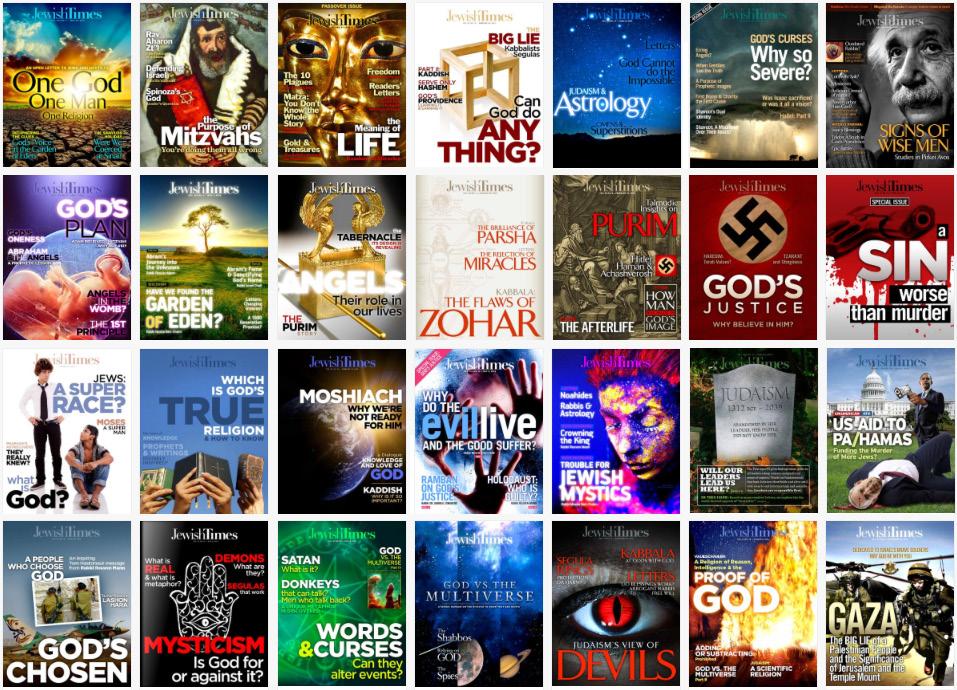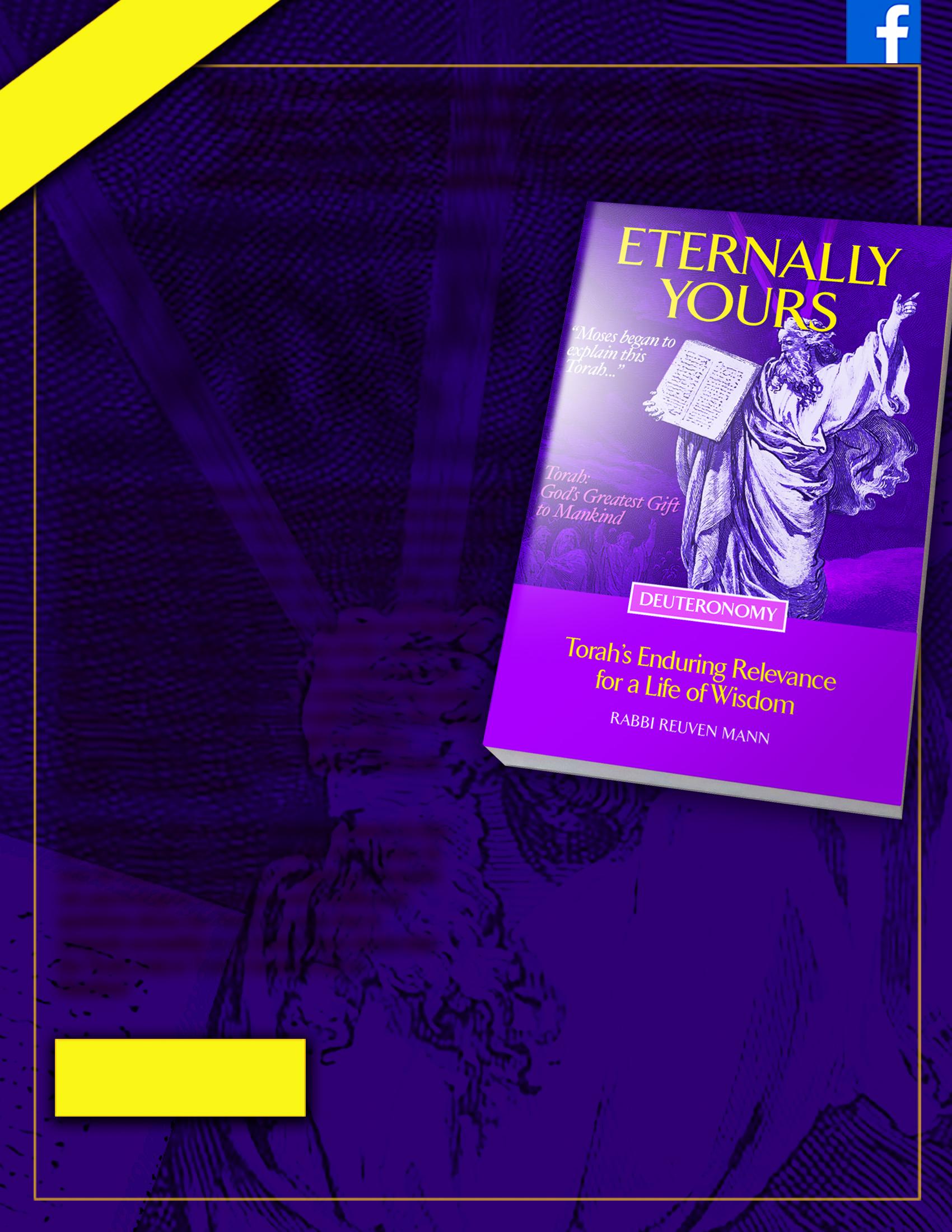

Wrong Ideas about God





RABBI REUVEN MANN

Just click any icon in

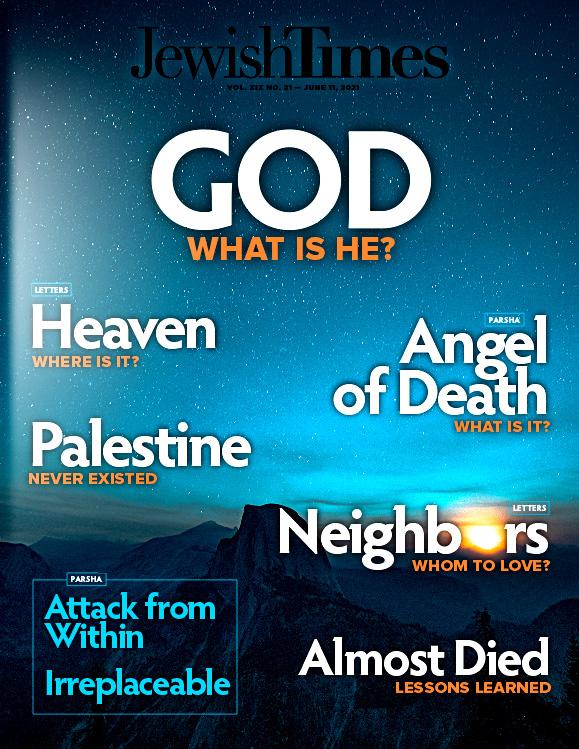





THE JOURNAL ON TORAH THOUGHT
| Please send letters and questions to: Comment@Mesora.org |
3 Letters
RABBI MOSHE BEN-CHAIM
Readers’ letters and the Rabbi’s responses to web topics
5 Perfection
RABBI MOSHE BEN-CHAIM
Talmud Succah 49b shares wonderful insights into character perfection
10 Must We Hate Evil?
RABBI REUVEN MANN
Avenging evil has its due place. The objective is Jewish values and Jewish unity.


LETTERS
Sensual Experience
READER: A question from the recent Jewishtimes. I am aware that praying to the dead is forbidden and nonsense. But [as Halacha says to do] why would one visit the grave to get inspiration, or pray to God in a grave of a prophet? Instead we know what Abraham Avinu A”H or any other prophet did and how great they were. Why not just think about their deeds or greatness and be inspired, or just pray at the place where one is? Thank you. Also I Am sorry about you Father A”H. May God comfort you and grant you ease. –Mark
RABBI: God granted emotions to man that they be used, and used properly. For example, inspiration can motivate us towards good actions. Therefore, Caleb—when threatened to side with the evil spies—went to the graves of the patriarchs and matriarchs to gain emotional fortitude in the reality of God’s oath to give Israel to Abraham’s descendants. That is, as real as the patriarchs and matriarchs were to Caleb, so too, God’s oath of Israel was real. And thereby, the spies’ opposing view was wrong.
Yes, one can focus his mind alone on this truth, but for others, emotional support is required, and is a good method for aligning oneself with truths. Torah also commands man to rejoice on the holidays with eating and drinking, as this forges positive associations about God’s salvation. And on fast days when one visits the dead, it moves one to a more vivid realization of his own death, and motivates one in repentance.
Our design is that sensual experience can have positive effects by making theoretical matters real through tangible reinforcement.
Thank you for your comfort for my father’s passing.
Lust vs. Greed
READER: In Hilchot Deot 1:1 Maimonides describes the midot of taavah and money, but isn't there an overlap? Isn't the “baal nefesh rechavah” (a wide soul) an example of a baal taavah?
–Alex Khagan
RABBI MOSHE BEN-CHAIM
RABBI: When it comes to the drive for money, Freud did not classify it as an instinctual drive in the same biological sense as sexual appetites or hunger. He would more likely consider the pursuit of money as a secondary drive that emerges from primary instincts. Money can be seen as a means to fulfill various instinctual and psychological needs. But the drive for money itself, "a wide soul" is not a primary lust, like sex and food.
Reincarnation
FROM THE WEB:
RABBI YOSEF MIZRACHI: Quoting Kabbala, a man who sleeps with a gentile is reincarnated as a dog. There was once a young man who was dating a gentile woman; the young man died. As the family was morning their son, a dog was scratching on the door outside. A visiting rabbi said, “Let the dog in.” And the dog came in and sat on the couch in the very same place where the son used to sit. The Rabbi said, “The dog is a reincarnation of your son.”
RABBI: Let’s first quote God, and not flawed, manmade Kabbala and Zohar:
“Fathers are not killed for their son’s sins, and sons are not killed for their fathers sins; each man in his own sin will be killed” (Deut. 24:16, Kings II 14:6)
Thus, future people do not pay the price for previous people. The notion that reincarnation enables a future man to fix a previous man’s sins violates God’s words. This dog story is utter nonsense. One must be clear about which texts are authored by God and which texts are not. Only those that are authored by God are absolute truths, and those texts are limited to Torah, Prophets, and Writings. But Kabbalah and Zohar are man-made and therefore contain errors. Even Moses made errors, so certainly lesser people err (Kabbala’s and Zohar’s authors). Therefore you are not bound to accept some notion just because it is found in Kabbalah or Zohar. Saadia Gaon fully rejects the notion of reincarnation. We don't find reincarnation anywhere in Torah. Now, two opposing views—Saadia Gaon vs. Rabbi Yosef Mizrachi/Kabbala—cannot both be correct. How do you arrive at the truth? God gave each person intelligence as God wants each person to use their intelligence in all cases. God wishes man to use reasoning and proofs to conclude properly. Both God’s creations—nat ural word and Torah—are created with His wisdom. There is no tolerance in either study for blind faith or unproved theories. Certainly foolish theories. God gave us our senses to distinguish reality from fantasy, and dismiss

what is not witnessed or proven. And reincarnation has never been witnessed. Thereby, God wishes that we reject reincarnation.
The idea itself of the dead returning as a senseless beast is not in line with God’s Torah, that seeks man to perfect himself, a great task requiring the intelligent soul, which animals do not possess. Thus, turning a man into a beast is against God’s goal for man. For a dead man to once again be revived, converting his human body into an animal that simply eats and sleeps, serves no purpose in God’s plan for man. It is quite ridiculous.
To those supporting reincarnation, consider that you never recalled a previous life, with mistakes for which you must atone. Ask yourself: Are you a reincarnation? Are your fiends? No one has recollection of a “previous life.” And as this is so, you cannot “repair former mistakes.” This whole reincarnation
premise is not rational, nor does Moshe’s Torah discuss it anywhere.
God’s punishments of death and karase (excision) are terminal. But if reincarnation were true, God’s threats are false. According to reincarnation, Torah’s punishments of death and karase are lies. Who was your previous self? What was his name? His family members? Where did he live? What years did he live? Let’s check historical records.
Finally, Torah says reward and punishment is for our present actions, not previous lives. And if reincarnation were true, then I won’t be punished, the next guy who gets my soul has to fix things. But this violates God’s principle of reward and punishment where Torah says, “Fathers are not killed for their son’s sins, and sons are not killed for their fathers sins; each man in his own sin will be killed” (Deut. 24:16, Kings II 14:6)

Kabbala/Zohar: Human Authors Err
RABBI: The Rabbis argued on each other; thereby testifying that 2 opposing opinions cannot both be correct. One is certainly wrong. But today, Jews have a difficulty using their minds and foolishly accept opposites, saying “Both Rabbis are correct” as they have been raised with the fear that authorities are infallible. But those very authorities do not agree, as they debate each other. As stated so many times, God granted each person a mind, precisely that each person uses his mind and not follow blind faith and fear questioning any authority. Talmud Chullin 124b quotes a rabbi saying, “Even if Joshua the son of Nun said this I would not accept it.” Shulchan Aruch teaches that if you research all the sources and see the matter differently than the rabbis, you may follow your own conclusion. And Aaron argued on Moses and Moses agreed that Aaron was correct. Torah’s lesson is to be honest and rational, and not view man as flawless, not even Moses. Certainly, when we find matters in Kabbala and Zohar—manmade books—which contradict reason and Torah. Torah, Prophets and Writings are the only communication authored by God. All else contain errors, including Kabbala and Zohar. Therefore when hearing people or rabbis quoting nonsense, like man is reincarnated as an animal, realize that Torah nowhere endorses reincarnation, and that such beliefs are problematic for many reasons. Both views cannot be correct, either reincarnation is true or false. Saadia Gaon rejected it, Kabbala accepts it. How do you choose? Use your God-given rational mind, because “A fool believes everything” (Proverbs 14:15). ■
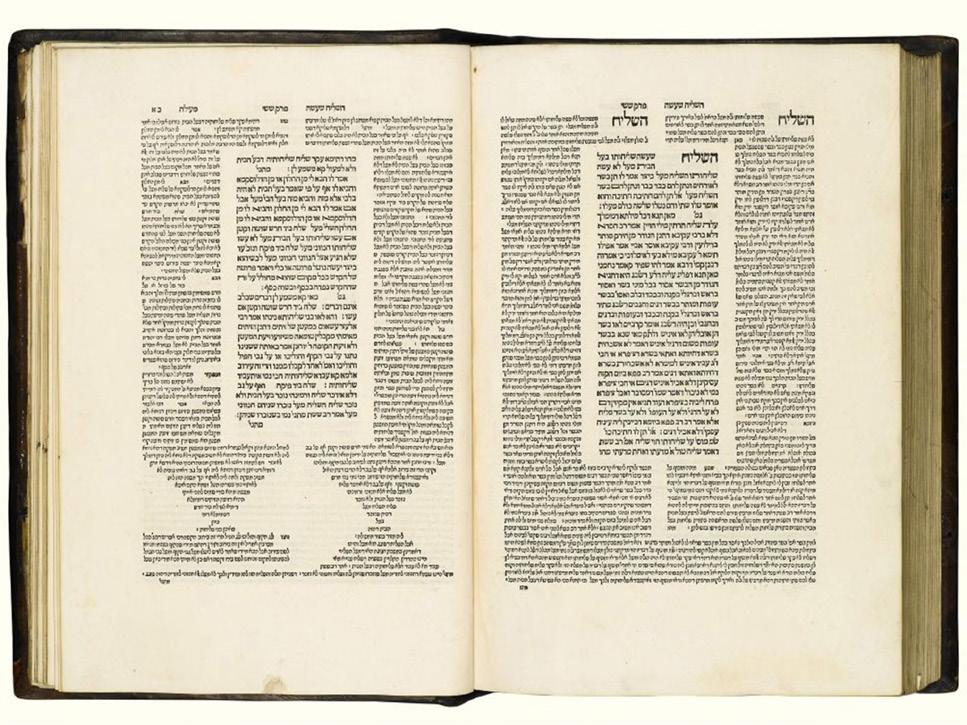



FROM THE TALMUD
Philosophical Perfectlon


Rava taught: “What is the meaning of that which is written: “How beautiful are your steps in sandals, O prince’s daughter” (Song of Songs 7:2)? How beautiful are the steps of the Jewish people at the time when they ascend to Jerusalem for the Festivals. “O prince’s daughter”; this is referring to the daughter of prince (“nadiv”), as it is stated: “The princes of the peoples are gathered, the people of the God of Abraham” (Psalms 47:10). The verse calls the Jewish people the people of the God of Abraham and not the God of Isaac and Jacob. Why are the Jewish people associated referring to the three Patriarchs? The verse is referring to Abraham who was first of the cob—converted from idolatry to monothe-
All Jewish males must ascend 3 times yearly to the Abraham who discovered God:
Three times a year—on the Feast of Unleavened Bread, on the Feast of Weeks, and on the Feast of Booths—all your males shall appear before your God in the place He will choose (Deut. 16:16).
In Song of Songs, King Solomon praises Abraham’s descendants who “take steps” to approach God in Temple. We approach God, and no other. Rashi explains the word “prince”—nadiv—to also mean “giving” or generous. Rashi says (Succah 49b) Abraham had 2 generosities: one was recognizing God, and one was to convert. What is the distinction? One can recognize God but still maintain false notions of other deities or powers. However, that is not a true recognition of God. A true recognition of God must exclude any other cause for the existence and operation of the universe. This means one who recognizes God rejects all other forces. And when one rejects all other forces, he has converted from his former polytheism to monotheism. Therefore, Abraham was not only dedicated to God, but he extricated himself from all false beliefs, and converted. That is the true meaning of conversion, where one abandons all false ideas and accepts God alone.
Abraham’s generosity was to himself: he gave himself the true purpose in life through 1) recognizing God alone and 2) by converting to live by that reality. Abraham was generous to himself by following reality.

RABBI MOSHE BEN-CHAIM
Modesty in Torah Study and Mitzvahs
In the school of Rav Anan it was taught: “What is the meaning of that which is written: ‘The hidden of your thighs’ (Song of Songs 7:2)? Why are matters of Torah likened to a thigh? It is to tell you that just as the thigh is always concealed, covered by clothes, so too, matters of Torah are optimal when recited in private and not in public.’”
(Succah 49b)
Rashi says, “Honor to Torah is to learn/teach privately, not in the city’s center or in the [public] marketplace.” We derive that man has the inclination to use even Torah to satisfy his ego, that is why one would parade his Torah activities in public. But this is not what the blessing teaches us: “To learn for the sake of learning itself” (Morning Prayers). Learning “lishma” refers to one who learns for the sole motivation of interest in God’s wisdom. In this case, no audience or applause is necessary. In fact, his learning is qualitatively greater when uninterrupted by others.
This gemara teaches that man who is motivated by ego is not motivated by truth, and he will use even his Torah studies to gain peer approval. And if something opposes his ego, he will abstain, even Torah and mitzvos. Talmud Brachos 63a teaches if there are other people teaching Torah in your city—certainly if they are greater than you—you should not teach Torah (Rabbi Israel Chait). This source is aware of the ego motivation to use the greatest mitzvah of Torah study or teaching, for self aggrandizement.
Man has no choice but to start life with instincts alone. His ego is powerful. But if he dedicates himself to study, he can eventually abandon ego drives like our greatest leaders whose traits included self-deprecation, as their view of God obscured their own self importance. King David said, “I am a worm.” Abraham said, “I am dust and ashes,” And

Moses and Aaron said, “We are nothing.” Rabbi Chait explained, David was the lowest of the 4, as he viewed him self as an animate creature, although the lowest of creatures, yet still animate. Abraham was on a higher level as he did not view himself as animated, but he still viewed himself as something, even dust and ashes. And Moses and Aaron were the highest level as they said they were “nothing.”
The Talmud continues:
And this is what Rabbi Elazar said: “What is the meaning of that which is written: ‘It has been told you, O man, what is good, and what the Lord does require of you; only to do justly, and to love mercy, and to walk humbly with your God’ (Micah 6:8)? “To do justly”; this is justice. “To love mercy”; this is acts of kindness. “To walk humbly with your God”; this is referring to taking the indigent dead out for burial and accompanying a poor bride to her wedding canopy, both of which must be performed without fanfare. And are these matters not inferred a fortiori? If, with regard to matters that tend to be conducted in public as the multitudes participate in funerals and weddings, the Torah says “Walk humbly,” then in matters that tend to be conducted in private, e.g., giving charity and studying Torah, all the more so should they be conducted privately.
The Talmud makes a case of the weaker argument to the stronger, “If A is true, certainly B is true” (a fortiori argument). As commands that typically are performed publicly should be handled as privately as possible, certainly private matters like giving charity and studying Torah should not be publicized. This continues the previous theme of studying/teaching privately without fanfare. Here, commands too must be handled as modestly as possible. There is a great danger in religious
life. In other areas, when a person wants to do something wrong, like a starving crook who has to justify robbing a bank to feed himself, he does rob the bank, but he recognizes he did something wrong. He is fortunate that he still retains some conscience, some sense of guilt to hopefully straighten his ways in the near future. But there is one area where a person can act incorrectly with no sense of guilt whatsoever. That is in religious matters. We see that the Crusades and Hitler, may his name be obliterated, felt they were doing God’s work and therefore had no remorse about murdering. The Talmud discusses the Rabbis’ attempt to restrain the instincts. They gave an allegory: “The instincts appeared as a fiery lion, exiting from the temple’s Holy of Holies.” Meaning, the strongest instincts (depicted as a fiery lion) have their source in religious matters (the temple’s holiest location). When a person feels that he is acting religiously as God wants, there is no guilt, even when perpetrating the greatest atrocities. So Hitler and the Crusades had no guilt whatsoever. And although not nearly as bad, it is still wrong for a person to use his Torah study or his performance of mitzvah as a means for self-aggrandizement. There is a great danger that one will feel justified in parading his religious activities, as his conscience has been obscured by his ego. If the ego can justify a religious act, it will not hesitate to perform it with great fanfare. But a person who understands the purpose of mitzvah, performs it because he agrees with God's will that such commands should be carried out for the good of oneself, of others, or for God’s fame, and not for gaining public acclaim. The good is the performance of the command, and not personal greatness. Therefore the righteous person studies Torah, and performs commandments as modestly as possible.
“And the man Moses was exceedingly more humble than all men on the face of Earth” (Num. 12:3).
(CONT. ON PAGE 8)


CLUES IN THE TEXT REVEAL MYSTERIES

All books depict history, facts, theories, fiction or poetry. No book is coded with hidden messages beyond the words or patterns revealing marvels. But the Bible (Torah) was written by God, and is “coded.” The order of verses, use of certain phrases, apparent contradictions and other Biblical patterns are pur poseful clues to God’s wisdom.
This book unveils those patterns and shares the hidden messages.




Beneficiaries of Charity
Rabbi Elazar said: “One who performs acts of charity is greater than one who sacrifices all types of offerings, as it is stated: ‘To perform charity and justice is more acceptable to the Lord than an offering’ (Proverbs 21:3), including all types of offerings.”
God prefers one gives charity as opposed to offering sacrifices. For one might think bringing God sacrifice outweighs relating to man through charity. However, one must reject this false notion that he is giving anything to God, as King David said, “But all is from You, and it is Your gift that we have given to You” (1 Chronicles 29:14). All belongs to God already. But in charity, there is a beneficiary, and in this, charity surpasses sacrifice which has no beneficiary.
Optimal Goodness
And Rabbi Elazar said: “Acts of kindness, assisting someone in need, are greater than charity, as it is stated: ‘Plant to yourselves according to charity, and reap according to kindness’ (Hosea 10:12). This means: If a person plants, it is uncertain whether he will eat or whether he will not eat, (nothing may grow-Rashi). However, if a person reaps, he certainly eats. (In this verse, charity is likened to planting, while acts of kindness are likened to reaping.)
Giving charity does not ensure the poor man will spend it properly, just like planting doesn’t ensure growth. But like harvesting, an act of kindness certainly is performed, independent from how the poor man receives it. The lesson is to optimize goodness to others by ensuring the greatest good is performed. Kindness is akin to reaping: in both, a good is “harvested.”
Charity: Not Simply about Money
And Rabbi Elazar said: “The reward for charity is paid (from Heaven) only in accordance with the kindness included therein, as it is stated: ‘Sow to yourselves according to charity, and reap according to kindness.’”
This second interpretation of this verse teaches that the second half modifies the first; reaping reward from charity depends on the level of kindness employed in the charity. Some might think, “My charitable act per se is the obligation, so by giving money alone I assume I fulfill giving charity.” But this is false, as the objective of charity is to restore the poor man’s dignity through commiserating and sympathy, and other acts of kindness in addition to your financial support. That is the halacha. “The reward for charity is paid only in accordance with the kindness included therein.” Thus, giving charity in a begrudging or callous manner forfeits one’s fulfillment.
Corrected Attitudes about Charity
The Sages taught that acts of kindness are superior to charity in three respects:
1) Charity can be performed only with one’s money, while acts of kindness can be performed both with his body and with his money.
2) Charity is given to the poor, while acts of kindness are performed both for the poor and for the rich.
3) Charity is given to the living, while acts of kindness are performed both for the living and for the dead.
1) Not just with money: One must truly value helping others, expressed by fulfill more opportunities to help others, not limited by money. Furthermore, sometimes money isn’t all one needs, or he may not need money at all, but could use our friendship or our attention. The lesson is that kindness can help others in more ways than money, and we should wish to help in more ways.
2) The rich needs kindness too: Man errs thinking a rich man is never in need of kindness, that wealth alone secures complete happiness, or one may resent one wealthier than he and not seek to help him. But these are all false attitudes, and Torah demands we show kindness regardless of one’s status relative to us. Kindness does not depend on us or our relative status to others. Kindness is based solely on the need of others.
3) Reciprocation: People have a difficulty doing good, if that good cannot be returned. Therefore we are taught to perform good even for the dead, from those who don;t know we helped them, and who cannot reciprocate our kindness. ■

Is Judaism mystical, or is it rational, based on reason and proofs?
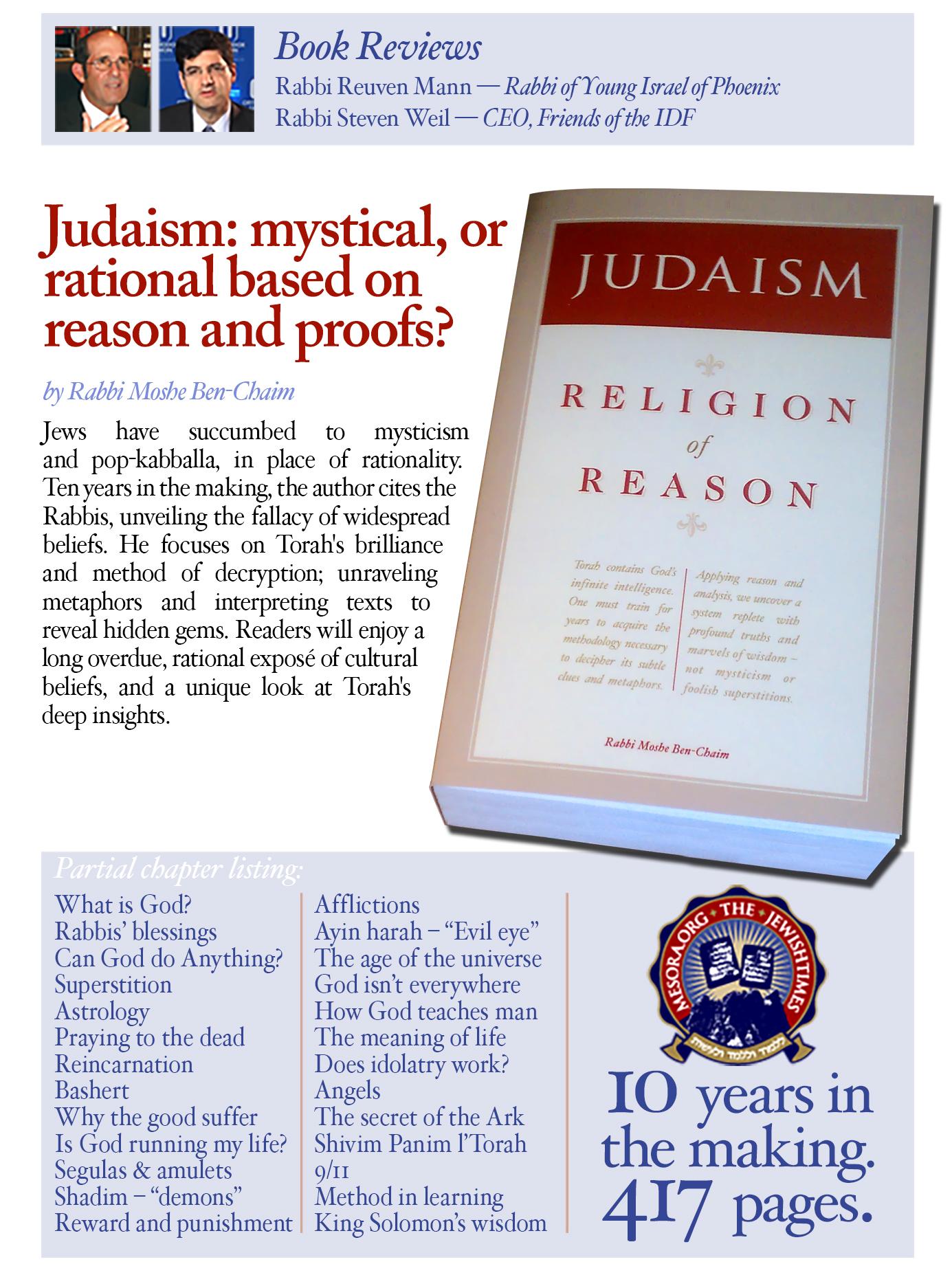



The Cry for Justice: Av HaRachamim and Jewish Martyrdom
It might at first seem strange, but one of my favorite prayers is that which is recited on Shabbat at Mussaf, known as Av HaRachamim (Father of Mercy). It was composed in the Middle Ages in response to the terrible pogroms initiated by the Church, in which vast numbers of innocent Jews were excruciatingly tortured and executed for the unforgivable crime of being Jews and of refusing to exchange their belief in Hashem for faith in that man.
Of course, the merciful Christians would spare any Jews who would convert to their religion, but few accepted that offer. In general, Jews throughout history favored death over apostasy and sacrificed themselves rather than relinquish their Emunah (faith) in Hakadosh Baruch Hu (The Holy One Blessed is He).
According to HaGaon Rav Yosef Soloveitchik many Jews fearing they would not, under the pain of unspeakable torture, be able to withstand the offer of conversion, preemptively killed their wives and children and, ultimately themselves.
The Rav comments:
“Tosafot (Sanhedrin 74b s.v. ‘vehah’) raises the question of whether it is in fact necessary to give up one’s life rather than submit to a forced baptism. The answer is that there is indeed no obligation to do so, but that those who did so, acted stringently. [These martyrs] considered any gesture to idolatry, even involuntary, as requiring them to incur death rather than engage in it.” (Koren Masoret HaRav Siddur, pg. 561)
These martyred Jews and so many others throughout our unique history are the holy ones who sanctified Hashem’s Name in a manner we can barely contemplate.
And what is it that we pray for in this heart-rending composition?
Must We Hate Evil?
RABBI REUVEN MANN
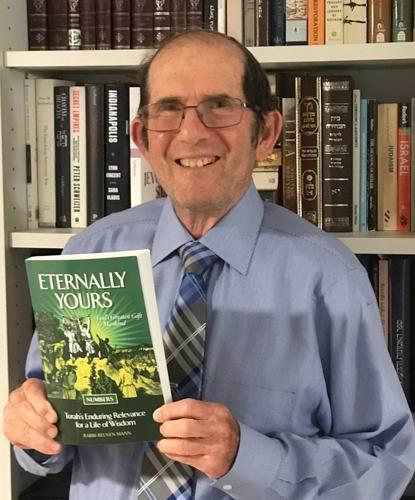
“Father of compassion, Who dwells on high, in His powerful compassion may He recall with compassion the devout, the upright, and the perfect ones; the holy congregations who gave their lives for the Sanctification of the Name… May our G-d remember them for good with the other righteous of the world. May He exact retribution for the spilled blood of His servants, as is written in the Torah of Moshe, the man of G-d: ‘O nations, sing the praise of His people for He will avenge the blood of His servants and He will bring retribution upon His foes; and He will appease His land and His people’.” (Devarim 32:43)…
And in the Holy Writings it is said:
“Why should the nations say ‘Where is their G-d?’ Let there be known among the nations, before our eyes; revenge for Your servants’ spilled blood” Tehilim 79:10).
In my opinion, this prayer goes contrary to the religious impulses of most people, who automatically and mindlessly associate religion with unconditional compassion. The Talmud, however, teaches that in the proper context, vengeance against evil can be a virtuous and necessary response. (CONT. ON NEXT PAGE)


Pinchas: The Zeal of Ahavat (love of) Hashem
This week’s Parsha, Pinchas, illustrates this idea. It teaches us that Nekama (revenge) which is generally frowned upon is occasionally a very vital commodity which is necessary to counter the harmful effects of extreme and irrational tolerance. Evil succeeds in this world only because it is unopposed by the so-called “good guys”. It is not infrequent that weakness and moral confusion masquerade under the banner of “tolerance”.
It is essential for those who are committed to truly righteous ideals to cultivate an attitude of contempt for corrupt values. The Kabbalat Shabbat (Initiation of Shabbat) prayers include this verse,
“Let those who love the Lord hate evil, for He protects the lives of his devoted ones, delivering them from the hands of the wicked”. (Tehilim 97:10).
Love of Hashem and Hatred of Evil
A person who claims to love Hashem but is indifferent to those who desecrate His Name and flaunt His commandments is fooling himself. True love carries with it a concomitant hatred of those whose goal is to destroy everything associated with the object of that love. A willingness to accept evil bespeaks a dearth of true love for the good. Enter Pinchas. He was a genuine lover of Hashem and did not subscribe to the philosophy of, “live and let live”. He was a spiritual warrior who would not sit back and allow licentiousness to parade unchallenged in the Jewish camp. When the leader of the tribe of Shimon publicly consorted with an idol-worshipping princess of Moab, he intuitively realized that this was not simply a matter of lustful behavior.
Had the illicit lovers bothered to secure a private getaway, out of the public’s view, their transgression, while serious, might not have warranted such
an extreme reaction. However, they chose to flaunt their liaison publicly. In this regard, we must consider the words of the Rambam at the conclusion of Hilchot Shabbat (30:15);
“The observance of the Sabbath and the prohibition against idol worship are each equivalent to the observance of all the commandments of the Torah. And the Sabbath is the eternal sign between the Holy One Blessed is He and us. Therefore, whoever transgresses the other Mitzvot is considered to be one of the sinners of Israel, but one who publicly violates the Sabbath is considered to be an idolater”.
We should note that the status of “idolater” is not conferred upon someone who exclusively transgresses Shabbat in private. That constitutes a serious infraction, but it is possible to assert that the violator acted because of compelling personal desires and not to demonstrate a disparagement of Torah. Therefore, he maintains a certain reluctance to act publicly out of respect for Hashem, the Sabbath, and his fellow Jews. But when sinners go out of their way to flaunt their rebelliousness and to degrade that which is most holy, it is incumbent upon the defenders of Torah to take decisive action.
Balancing Zeal and Compassion in Modern Israel
The story of Pinchas has great relevance to contemporary Jewish life, especially in Israel. The majority of Israelis while they assert belief in Hashem are nevertheless not fully observant of Torah law. This is not because of disrespect but because they were raised in an entirely secular culture and were taught a set of values that are different from those of Torah Judaism.
It is the task of those of us who observe the Mitzvot to relate to all our brothers and sisters with chords of love and friendship. This is a situation in which we must display a great deal of Savlanut (patience) and not feel personally insulted by blatant disregard of the Shabbat. It goes without saying that we should not throw rocks at those who drive their cars on Shabbat. We must control our rage and impulse to retaliate as such behavior will push people further away from Torah and will also constitute a Chillul Hashem (Desecration of Hashem’s Name). However, this does not mean that we should be indifferent to the public flaunting of Jewish law. We must be committed to the goal of reaching out to all our fellow Jews and communicating to them, with great sensitivity, the profound depth and beauty of a genuine Torah life.
The “righteous zealousness” of Pinchas was deeply rooted in his powerful and pure Ahavat Hashem. His act of vengeance was appropriate to the context in which the sin he opposed took place.
We must cultivate in our souls a very meaningful Love of Hashem. This will prevent us from looking with equanimity upon the overt trampling of Torah ideals. In our context, we should be motivated to refrain from mindless acts out of revenge, but rather to engage in activities that express and cultivate our love and deep concern for all our fellow Jews.
May Hashem assist us in this noble endeavor. Shabbat Shalom. ■
